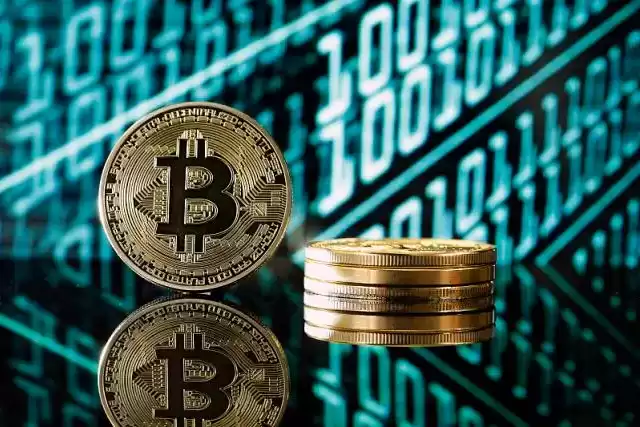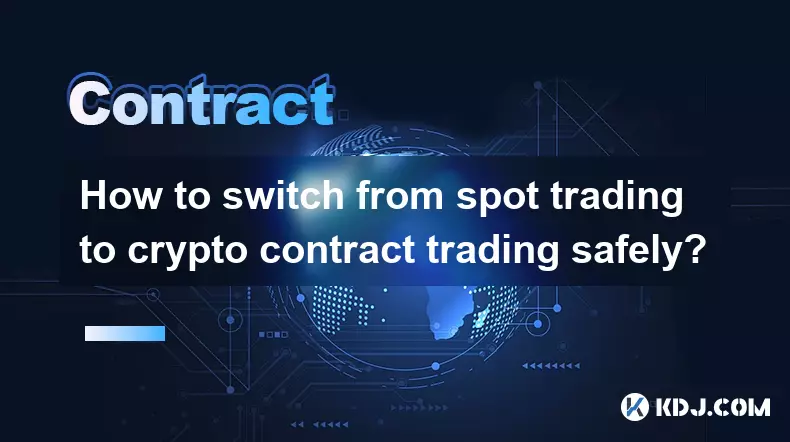-
 bitcoin
bitcoin $87959.907984 USD
1.34% -
 ethereum
ethereum $2920.497338 USD
3.04% -
 tether
tether $0.999775 USD
0.00% -
 xrp
xrp $2.237324 USD
8.12% -
 bnb
bnb $860.243768 USD
0.90% -
 solana
solana $138.089498 USD
5.43% -
 usd-coin
usd-coin $0.999807 USD
0.01% -
 tron
tron $0.272801 USD
-1.53% -
 dogecoin
dogecoin $0.150904 USD
2.96% -
 cardano
cardano $0.421635 USD
1.97% -
 hyperliquid
hyperliquid $32.152445 USD
2.23% -
 bitcoin-cash
bitcoin-cash $533.301069 USD
-1.94% -
 chainlink
chainlink $12.953417 USD
2.68% -
 unus-sed-leo
unus-sed-leo $9.535951 USD
0.73% -
 zcash
zcash $521.483386 USD
-2.87%
The principle of Bitcoin contract rise and fall
Arbitrage opportunities in Bitcoin contracts arise from price discrepancies between exchanges, allowing traders to profit by buying low and selling high for potential gains.
Nov 10, 2024 at 08:15 am

Bitcoin contracts, also known as Bitcoin futures or Bitcoin options, are financial instruments that allow traders to speculate on the future price of Bitcoin. These contracts can be used for hedging, arbitrage, or simply speculating on the price of Bitcoin.
The price of Bitcoin contracts is determined by a number of factors, including:
- The spot price of Bitcoin
- The expected future price of Bitcoin
- The time to expiration of the contract
- The risk-free rate of interest
The principle of Bitcoin contract rise and fall is based on the concept of arbitrage. Arbitrage is the process of buying an asset in one market and selling it in another market for a profit. In the case of Bitcoin contracts, arbitrageurs can profit by buying Bitcoin contracts in one exchange and selling them in another exchange where the price is higher.
Steps Involved in the Rise and Fall of Bitcoin Contracts- Identify an arbitrage opportunity: The first step in profiting from Bitcoin contracts is to identify an arbitrage opportunity. This can be done by comparing the prices of Bitcoin contracts on different exchanges. If there is a significant difference in price, then there may be an arbitrage opportunity.
- Execute the arbitrage trade: Once an arbitrage opportunity has been identified, the next step is to execute the trade. This involves buying Bitcoin contracts on the exchange where the price is lower and selling them on the exchange where the price is higher.
- Collect the profit: Once the arbitrage trade has been executed, the trader will collect the profit. The profit is equal to the difference in price between the two exchanges, minus any fees that were incurred.
- Spot Price of Bitcoin: The spot price of Bitcoin is the current price of Bitcoin on the spot market. The spot price of Bitcoin is one of the most important factors that affects the price of Bitcoin contracts.
- Expected Future Price of Bitcoin: The expected future price of Bitcoin is the price that traders expect Bitcoin to be in the future. The expected future price of Bitcoin is based on a number of factors, including the current market conditions, the news, and the technical analysis of Bitcoin's price chart.
- Time to Expiration of the Contract: The time to expiration of a Bitcoin contract is the amount of time until the contract expires. The time to expiration of a contract affects the price of the contract because it determines the amount of risk that is involved in holding the contract.
- Risk-Free Rate of Interest: The risk-free rate of interest is the interest rate that is earned on a risk-free investment, such as a government bond. The risk-free rate of interest affects the price of Bitcoin contracts because it is used to discount the future cash flows of the contract.
The principle of Bitcoin contract rise and fall is based on the concept of arbitrage. Arbitrageurs can profit by buying Bitcoin contracts in one exchange and selling them in another exchange where the price is higher. The price of Bitcoin contracts is determined by a number of factors, including the spot price of Bitcoin, the expected future price of Bitcoin, the time to expiration of the contract, and the risk-free rate of interest.
Disclaimer:info@kdj.com
The information provided is not trading advice. kdj.com does not assume any responsibility for any investments made based on the information provided in this article. Cryptocurrencies are highly volatile and it is highly recommended that you invest with caution after thorough research!
If you believe that the content used on this website infringes your copyright, please contact us immediately (info@kdj.com) and we will delete it promptly.
- Bitcoin Faces Identity Crisis as Speculators Flock to Prediction Markets and Ultra-Short Options
- 2026-02-02 00:30:06
- MGK and Jelly Roll Honor Ozzy Osbourne at Pre-Grammy Gala, Sparking Fan Frenzy
- 2026-02-02 00:50:02
- Litecoin Price Cracks 9-Year Floor Amidst Market Breakdown: What's Next for the OG Crypto?
- 2026-02-02 01:20:02
- Crypto News, Cryptocurrency Markets, Latest Updates: A Topsy-Turvy Start to 2026
- 2026-02-02 01:15:01
- New York Minute: LivLive Presale Ignites, While Solana Navigates Choppy Waters
- 2026-02-02 01:15:01
- Strategy Inc, Bitcoin, and Optimism: A Bold New Era in Digital Assets
- 2026-02-02 01:25:01
Related knowledge

How to close a crypto contract position manually or automatically?
Feb 01,2026 at 11:19pm
Manual Position Closure Process1. Log into the trading platform where the contract is active and navigate to the 'Positions' or 'Open Orders' tab. 2. ...

How to understand the impact of Bitcoin ETFs on crypto contracts?
Feb 01,2026 at 04:19pm
Bitcoin ETFs and Market Liquidity1. Bitcoin ETFs introduce institutional capital directly into the spot market, increasing order book depth and reduci...

How to trade DeFi contracts during the current liquidity surge?
Feb 01,2026 at 07:00am
Understanding Liquidity Dynamics in DeFi Protocols1. Liquidity surges in DeFi are often triggered by coordinated capital inflows from yield farming in...

How to trade micro-cap crypto contracts with high growth potential?
Feb 01,2026 at 02:20pm
Understanding Micro-Cap Crypto Contracts1. Micro-cap crypto contracts refer to derivative instruments tied to tokens with market capitalizations under...

How to optimize your workspace for professional crypto contract trading?
Feb 01,2026 at 08:20pm
Hardware Infrastructure Requirements1. High-frequency crypto contract trading demands ultra-low latency execution. A dedicated workstation with a mini...

How to switch from spot trading to crypto contract trading safely?
Feb 01,2026 at 03:59pm
Understanding the Core Differences Between Spot and Contract Trading1. Spot trading involves the immediate exchange of cryptocurrencies for fiat or ot...

How to close a crypto contract position manually or automatically?
Feb 01,2026 at 11:19pm
Manual Position Closure Process1. Log into the trading platform where the contract is active and navigate to the 'Positions' or 'Open Orders' tab. 2. ...

How to understand the impact of Bitcoin ETFs on crypto contracts?
Feb 01,2026 at 04:19pm
Bitcoin ETFs and Market Liquidity1. Bitcoin ETFs introduce institutional capital directly into the spot market, increasing order book depth and reduci...

How to trade DeFi contracts during the current liquidity surge?
Feb 01,2026 at 07:00am
Understanding Liquidity Dynamics in DeFi Protocols1. Liquidity surges in DeFi are often triggered by coordinated capital inflows from yield farming in...

How to trade micro-cap crypto contracts with high growth potential?
Feb 01,2026 at 02:20pm
Understanding Micro-Cap Crypto Contracts1. Micro-cap crypto contracts refer to derivative instruments tied to tokens with market capitalizations under...

How to optimize your workspace for professional crypto contract trading?
Feb 01,2026 at 08:20pm
Hardware Infrastructure Requirements1. High-frequency crypto contract trading demands ultra-low latency execution. A dedicated workstation with a mini...

How to switch from spot trading to crypto contract trading safely?
Feb 01,2026 at 03:59pm
Understanding the Core Differences Between Spot and Contract Trading1. Spot trading involves the immediate exchange of cryptocurrencies for fiat or ot...
See all articles










































































